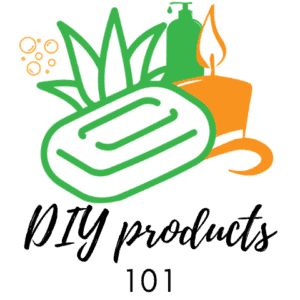Bath bombs typically last up to six months, with their effectiveness, fizziness, and scent diminishing over time. Using them within this period ensures maximum freshness. The article explores the factors influencing bath bomb expiration and offers guidance on prolonging their lifespan and handling expired ones.
Discover the ‘secrets’ Professional Bath Bomb Makers use to create luscious bath bombs with this step-by-step guide. You’ll have a priceless reference collection of product recipes with natural ingredients designed to create a relaxing spa atmosphere in your own home.
Secrets to Long-Lasting Bath Bombs
Professional bath bomb makers prioritize natural ingredients for a spa-like experience at home. The shelf life of each ingredient in a bath bomb is crucial for its overall longevity and safety. Methods to extend the life of bath bombs and safe usage practices are discussed.

Do Bath Bombs Expire?
Bath bombs, often made from natural ingredients like sodium bicarbonate and citric acid, do expire. Citric acid’s reactivity to moisture reduces its effectiveness over time, especially when improperly stored. The shelf life of each component, especially organic ones, is essential as they can lose potency or become harmful.
Duration and Freshness of Bath Bombs
Home made Bath bombs generally have a six-month shelf life, influenced by ingredients and storage methods. Aromas and oils are key factors in their longevity. Store-bought versions may last longer due to chemical aromas, but their fragrance still fades over time.
Common Bath Bomb Ingredients and Shelf Life (Check Amazon prices here)
- Coconut oil: Over one year
- Avocado oil: Up to one year
- Palm oil: 1.5 years
- Castor oil: One year
- Coffee butter: One year
- Sweet Almond oil: One year
- Apricot Kernel oil: 6 months to 1 year
- Olive oil: Up to 2 years
- Canola oil: 1 to 2 years
- Sunflower oil: 6 months
Combining these ingredients with baking soda and citric acid may alter their shelf life. Contacting manufacturers for specific expiration details is advised.
Storing Bath Bombs for Freshness
To maximize shelf life, bath bombs should be stored in dry, cool places with low moisture, such as basements or cupboards. Avoid bathrooms due to high moisture levels. Airtight containers, Tupperware, or mason jars are effective storage solutions, or the usage of of a dehumifier helps. Special care is needed for bombs with fresh ingredients.
Storage Guide
- Seal bath bombs in airtight plastic wraps, using knots and stickers for secure sealing.
- Shrink wraps offer enhanced moisture protection through heat-sealing.
- Sealable plastic bags can be used, ensuring all air is squeezed out before sealing.

Can Bath Bombs Grow Mold?
Bath bombs, like other bathroom products, can develop mold if exposed to water. This is particularly true for bombs containing fresh ingredients. Rancidity, indicated by changes in color, smell, and potency, can also occur, affecting the product’s safety and effectiveness.
Using Expired Bath Bombs
While technically usable, expired bath bombs lack fizz, aroma, and may crumble without reaction. They pose risks like skin irritation, especially if containing harmful post-expiry ingredients. Store-bought bombs with unknown chemicals present additional hazards.
Repurposing Expired Bath Bombs
Expired bath bombs, though not recommended for use in baths, can serve as bathroom decorations. However, they lose texture and scent over time and might be best discarded if significantly old.
Endnotes
Understanding bath bomb expiry and shelf life aids in better DIY project planning and usage. Avoid hoarding and use bath bombs soon after purchase for optimal freshness.
